Most of the current content can be found on the German page.
Here are just a few highlights.
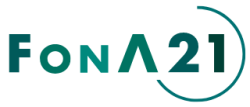
The Research Network on Antisemitism in the 21st Century (FoNA21) was founded within the framework of the Federal Ministry of Education and Research (BMBF) funding program Current Dynamics and Challenges of Antisemitism. It is composed of ten collaborative projects and one coordinating project that are dedicated to researching the causes and manifestations of antisemitism in contemporary Germany through a variety of interdisciplinary and methodological perspectives.
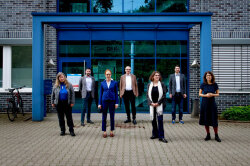
Professionalize police and teachers against anti-Semitism
Public servants are supposed to counter anti-Semitism, but so far they have hardly been adequately prepared for this. A new research network is now addressing this issue.
What knowledge should future public servants in schools and the police have in order to actively counteract anti-Semitism in their working environment? And how can their level of knowledge on the topic, which is also linked to individual attitudes, be surveyed and measured? What kind of argumentation training can help to professionalize the necessary skills of the target group already during training? These questions are being addressed by the interdisciplinary team of the EMPATHIA³ research network, led by Prof. Dr. Nicola Brauch, history didactician at the Ruhr University Bochum (RUB). As one of ten nationwide projects, it is funded by the Federal Ministry of Education and Research in the funding line "Current Dynamics and Challenges of Anti-Semitism" for four years. The network will begin its research work at the beginning of October 2021.
Contact
Ruhr-University Bochum
Didactics of history
GA 5/62
Universitätsstr. 150
44801 Bochum
Sekretary
Roxana Breitenbach
+49 234 32-23992
GA 4/147
December 2022
Metacomprehension in multiple document reading – can judgment accuracy be fostered by generating Twitter-based summaries?
Symposium presentation at the EARLI 9th SIG 16 Biennial Conference – Metacognition Online Gathering 2022, 24.06.-09.12.2022, online.
Schuster, C., Alef, M., Mierwald, M., Brauch, N., & Stadtler, M.
September 21, 2022
Strategies for action and cooperation between authorities and civil society
Panel Discussion (Flyer)
Competence Network Anti-Semitism
State Representation of North Rhine-Westphalia, Berlin
Prof. Dr. Nicola Brauch und Dr. Sarah Jadwiga Jahn
September 19, 2022
Was ist Antisemitismus?
Workshop Summer Academy 2022
Current Dynamics and Challenges of Anti-Semitism (19. - 20.09.2022)
Prof. Dr. Nicola Brauch und Volker Beck
August 30, 2022
„Und ich wusste nicht, dass es das gibt.“
Anti-Semitism as a problem in schools. The Empathia Project as a support for teachers.
Study day on democracy education, at the ZfsL Paderborn, in cooperation with the ZfsL support association "Lehren Lernen".
(Prof Dr. Nicola Brauch und Dr. Marcel Mierwald)
June 2022
Historisches Denken 2.0 – Benötigen wir neue (digitale) historische (Methoden-) Kompetenzen?
Vortrag auf der Tagung „Geschichte im digitalen Wandel? Geschichtskultur – Erinnerungspraktiken – Historisches Lernen“ des Bereiches für Theorie und Didaktik der Geschichte der Universität Paderborn in Kooperation mit: Heinz Nixdorf MuseumsForum, L.I.S.A. Wissenschaftsportal der Gerda Henkel Stiftung, AG Digitaler Wandel und Geschichtsdidaktik der Konferenz für Geschichtsdidaktik, AG Digitale Geschichtswissenschaft im Verband der Historiker und Historikerinnen Deutschlands e.V., 02.06.-04.06.2022, Paderborn.
Mierwald, M.

Monograph
Rüsen, J., Barricelli, M., Brauch, N., de Rezende Martins, E. C., Jaeger, F. (2025). Handbuch der Historik. Wiesbaden: Springer VS. [Link]
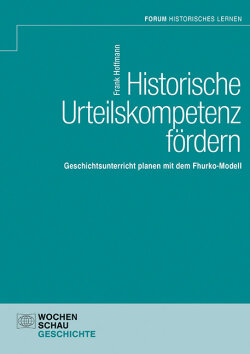
Monograph
Hoffmann, F. unter Mitarbeit von Brauch, N. (2024). Historische Urteilskompetenz fördern - Geschichtsunterricht planen mit dem Fhurko-Modell. Frankfurt am Main: Wochenschau Verlag. [Link]
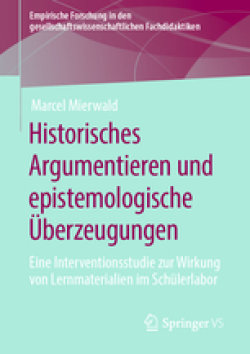
Monograph
Mierwald, M. (2020). Historisches Argumentieren und epistemologische Überzeugungen. Eine Interventionsstudie zur Wirkung von Lernmaterialien im Schülerlabor. (Reihe: Empirische Forschung in den gesellschaftswissenschaftlichen Fachdidaktiken). Wiesbaden: Springer VS. [Verfügbar unter: https://www.springer.com/de/book/9783658299545]
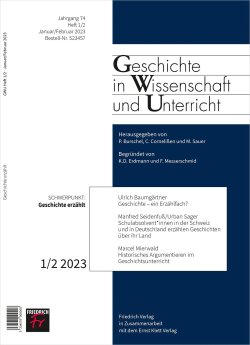
Articles in magazines